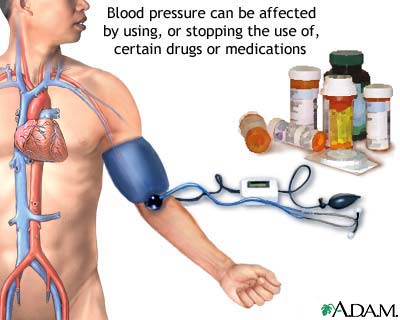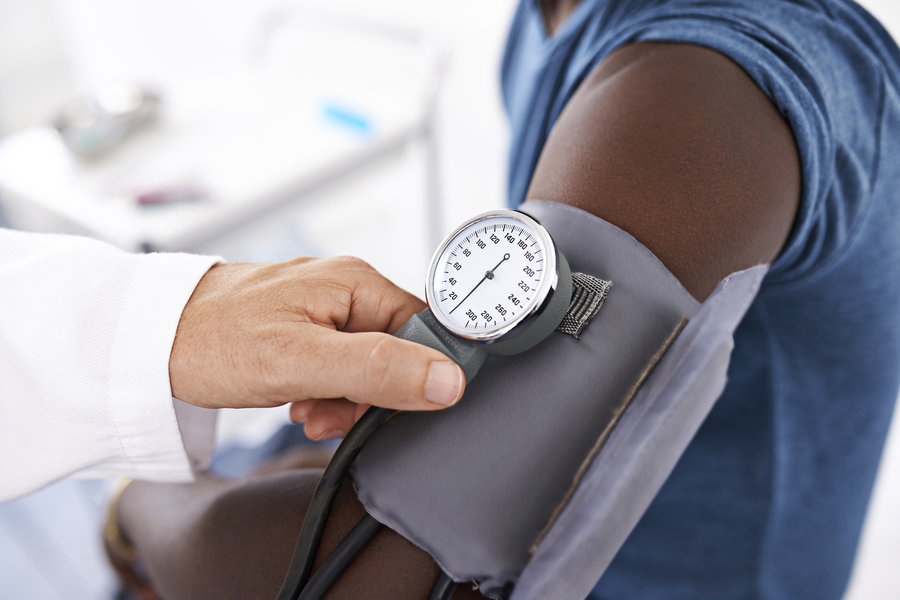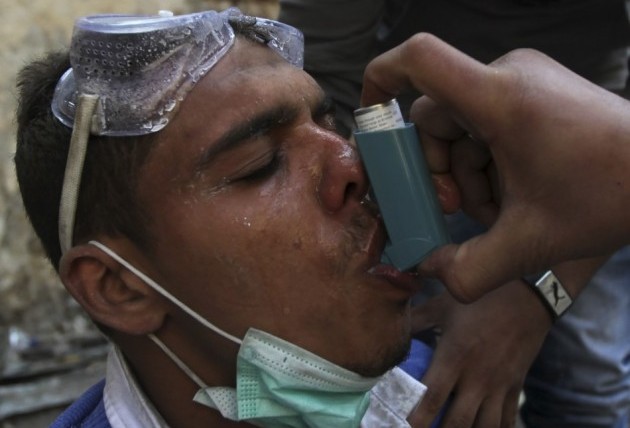Hypertension, in Medilexicon’s medical dictionary, means “High blood pressure; transitory or sustained elevation of systemic arterial blood pressure to a level likely to induce cardiovascular damage or other adverse consequences.” According to the Pan African Medical Journal (2012), in addition to the direct costs in form of treatment related costs, there are also indirect costs related to lost man hours and savings among workers due to catastrophic health care expenditures.
In limited resource settings where chronic disease control is yet to be prioritised and access to health care is limited, cost effective and affordable approaches are needed to meet this challenge. Unfortunately, the number of studies that report these costs is quite small, as few economic analyses relating to management of chronic diseases have been conducted in Nigeria.
As noted earlier hypertension or high blood pressure is a condition in which the blood pressure in the arteries is chronically elevated. With every heart beat, the heart pumps blood through the arteries to the rest of the body. Blood pressure is the force of blood that is pushing up against the walls of the blood vessels. If the pressure is too high, the heart has to work harder to pump, and this could lead to organ damage and several illnesses such as heart attack, stroke, heart failure, aneurysm, or renal failure.
Hypertension is said to be the commonest non-communicable in Nigeria. Medical expert, Dr Pamela Ajayi, managing director of Pathcare Nigeria described hypertension as a disease of the African race, as statistics has shown that Africans are more genetically predisposed to developing high blood pressure.
She, however, stated that in spite of its prevalence among Africans, more Nigerians are dying of the disease because of ignorance, poor socio-cultural beliefs and poor health-seeking behaviours. According to her, though there is no cure, high blood pressure can be effectively managed for life when the patient is diagnosed earlier.
Ajayi stated that to quickly address this challenge of undetected cases of hypertension to save lives, every Nigerian must know their high blood pressure status.

Research has shown that the normal level for blood pressure is below 120/80, where 120 represent the systolic measurement (peak pressure in the arteries) and 80 represents the diastolic measurement (minimum pressure in the arteries). Blood pressure between 120/80 and 139/89 is called prehypertension (to denote increased risk of hypertension), and a blood pressure of 140/90 or above is considered hypertension.
Hypertension may be classified as essential or secondary. Essential hypertension is the term for high blood pressure with unknown cause. It accounts for about 95 per cent of cases. Secondary hypertension is the term for high blood pressure with a known direct cause, such as kidney disease, tumours, or birth control pills.
What causes hypertension?
Though the exact causes of hypertension are usually unknown, there are several factors that have been highly associated with the condition. These include:
- Smoking
- Obesity or being overweight
- Diabetes
- Sedentary lifestyle
- Lack of physical activity
- High levels of salt intake (sodium sensitivity)
- Insufficient calcium, potassium, and magnesium consumption
- Vitamin D deficiency
- High levels of alcohol consumption
- Stress
- Ageing
- Medicines such as birth control pills
- Genetics and a family history of hypertension
- Chronic kidney disease
- Adrenal and thyroid problems or tumours
What are symptoms of hypertension?
There is no guarantee that a person with hypertension will present any symptoms of the condition. About 33 per cent of people actually do not know that they have high blood pressure, and this ignorance can last for years. For this reason, it is advisable to undergo periodic blood pressure screenings even when no symptoms are present.
Extremely high blood pressure may lead to some symptoms, however, and these include:
- Severe headaches
- Fatigue or confusion
- Dizziness
- Nausea
- Problems with vision
- Chest pains
- Breathing problems
- Irregular heartbeat
- Blood in the urine
How is hypertension diagnosed?
Hypertension may be diagnosed by a health professional who measures blood pressure with a device called a sphygmomanometer – the device with the arm cuff, dial, pump, and valve. The systolic and diastolic numbers will be recorded and compared to a chart of values. If the pressure is greater than 140/90, you will be considered to have hypertension.
A high blood pressure measurement, however, may be spurious or the result of stress at the time of the exam. In order to perform a more thorough diagnosis, physicians usually conduct a physical exam and ask for the medical history of you and your family. Doctors will need to know if you have any of the risk factors for hypertension, such as smoking, high cholesterol, or diabetes.
If hypertension seems reasonable, tests such as electrocardiograms (ECG) and echocardiograms will be used in order to measure electrical activity of the heart and to assess the physical structure of the heart. Additional blood tests will also be required to identify possible causes of secondary hypertension and to measure renal function, electrolyte levels, sugar levels, and cholesterol levels.
How is hypertension treated?
The main goal of treatment for hypertension is to lower blood pressure to less than 140/90 – or even lower in some groups such as people with diabetes, and people with chronic kidney diseases. Treating hypertension is important for reducing the risk of stroke, heart attack, and heart failure.
High blood pressure may be treated medically, by changing lifestyle factors, or a combination of the two. Important lifestyle changes include losing weight, quitting smoking, eating a healthful diet, reducing sodium intake, exercising regularly, and limiting alcohol consumption.
Medical options to treat hypertension include several classes of drugs. ACE inhibitors, ARB drugs, beta-blockers, diuretics, calcium channel blockers, alpha-blockers, and peripheral vasodilators are the primary drugs used in treatment. These medications may be used alone or in combination, and some are only used in combination. In addition, some of these drugs are preferred to others depending on the characteristics of the patient (diabetic, pregnant, etc.).
If blood pressure is successfully lowered, it is wise to have frequent checkups and to take preventive measures to avoid a relapse of hypertension.
How can hypertension be prevented?
Hypertension can best be prevented by adjusting your lifestyle so that proper diet and exercise are key components. It is important to maintain a healthy weight, reduce salt intake, reduce alcohol intake, and reduce stress.
In order to prevent damage to critical organs and conditions such as stroke, heart attack, and kidney failure that may be caused by high blood pressure, it is important to screen, diagnose, treat, and control hypertension in its earliest stages. This can also be accomplished by increasing public awareness and increasing the frequency of screenings for the condition.
Exams and tests
Your health care provider will check your blood pressure several times before diagnosing you with high blood pressure. It is normal for your blood pressure to be different depending on the time of day.
Blood pressure readings taken at home may be a better measure of your current blood pressure than those taken at your doctor’s office. Make sure you get a good quality, well-fitting home device. It should have the proper sized cuff and a digital readout.
Practice with your health care provider or nurse to make sure you are taking your blood pressure correctly.
Your doctor will perform a physical exam to look for signs of heart disease, damage to the eyes, and other changes in your body.
Tests may be done to look for:
- High cholesterol levels
- Heart disease, such as an echocardiogram or electrocardiogram
- Kidney disease, such as a basic metabolic panel and urinalysis or ultrasound of the kidneys
Treatment
The goal of treatment is to reduce blood pressure so that you have a lower risk of complications. You and your health care provider should set a blood pressure goal for you.
If you have pre-hypertension, your health care provider will recommend lifestyle changes to bring your blood pressure down to a normal range. Medicines are rarely used for pre-hypertension.
You can do many things to help control your blood pressure, including:
- Eat a heart-healthy diet, including potassium and fiber, and drink plenty of water. See: High blood pressure and diet
- Exercise regularly – at least 30 minutes of aerobic exercise a day.
- If you smoke, quit – find a programme that will help you stop.
- Limit how much alcohol you drink – one drink a day for women, two a day for men.
- Limit the amount of sodium (salt) you eat – aim for less than 1,500 mg per day.
- Reduce stress – try to avoid things that cause you stress. You can also try meditation or yoga.
- Stay at a healthy body weight – find a weight-loss programme to help you, if you need it.
Your health care provider can help you find programmes for losing weight, stopping smoking, and exercising. You can also get a referral from your doctor to a dietician, who can help you plan a diet that is healthy for you.
There are many different medicines that can be used to treat high blood pressure. See: High blood pressure medicines
Often, a single blood pressure drug may not be enough to control your blood pressure, and you may need to take two or more drugs. It is very important that you take the medications prescribed to you. If you have side effects, your health care provider can substitute a different medication.
Possible complications
When blood pressure is not well controlled, you are at risk for:
- Bleeding from the aorta, the large blood vessel that supplies blood to the abdomen, pelvis, and legs
- Chronic kidney disease
- Heart attack and heart failure
- Poor blood supply to the legs
- Stroke
- Problems with your vision.
When to contact a medical professional
If you have high blood pressure, you will have regular appointments with your doctor.
Even if you have not been diagnosed with high blood pressure, it is important to have your blood pressure checked during your yearly check-up, especially if someone in your family has or had high blood pressure.
Call your health care provider right away if home monitoring shows that your blood pressure is still high.
Prevention
Adults over 18 should have their blood pressure checked regularly.
Lifestyle changes may help control your blood pressure.
Follow your health care provider’s recommendations to modify, treat, or control possible causes of high blood pressure.
Compiled by Adebayo Folorunsho-Francis with additional reports from Pan African Medical Journal, Guidelines for the Management of Hypertension In Nigeria, American Heart Association/American Stroke Association and Braunwald’s Heart Disease: A Textbook of Cardiovascular Medicine




